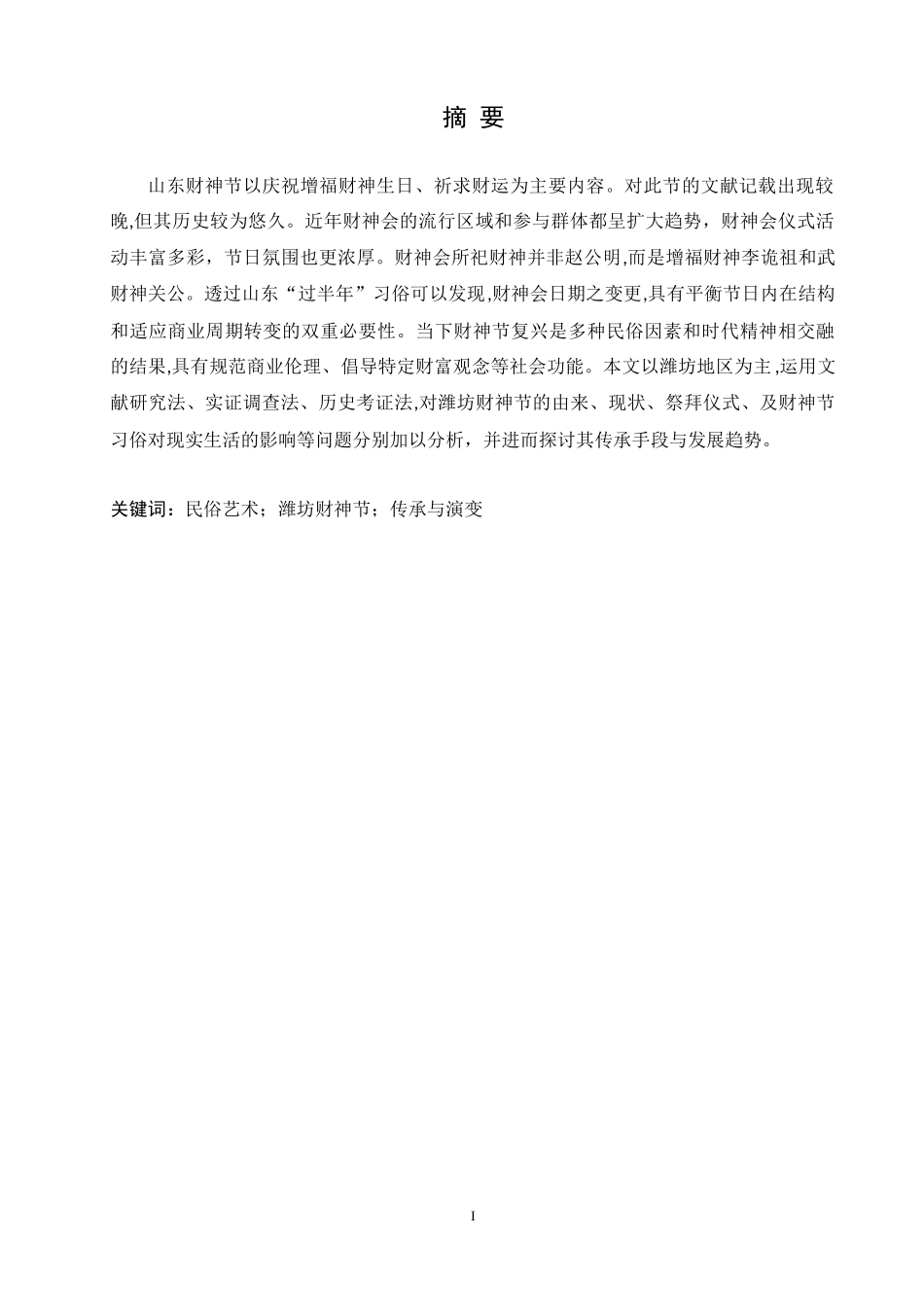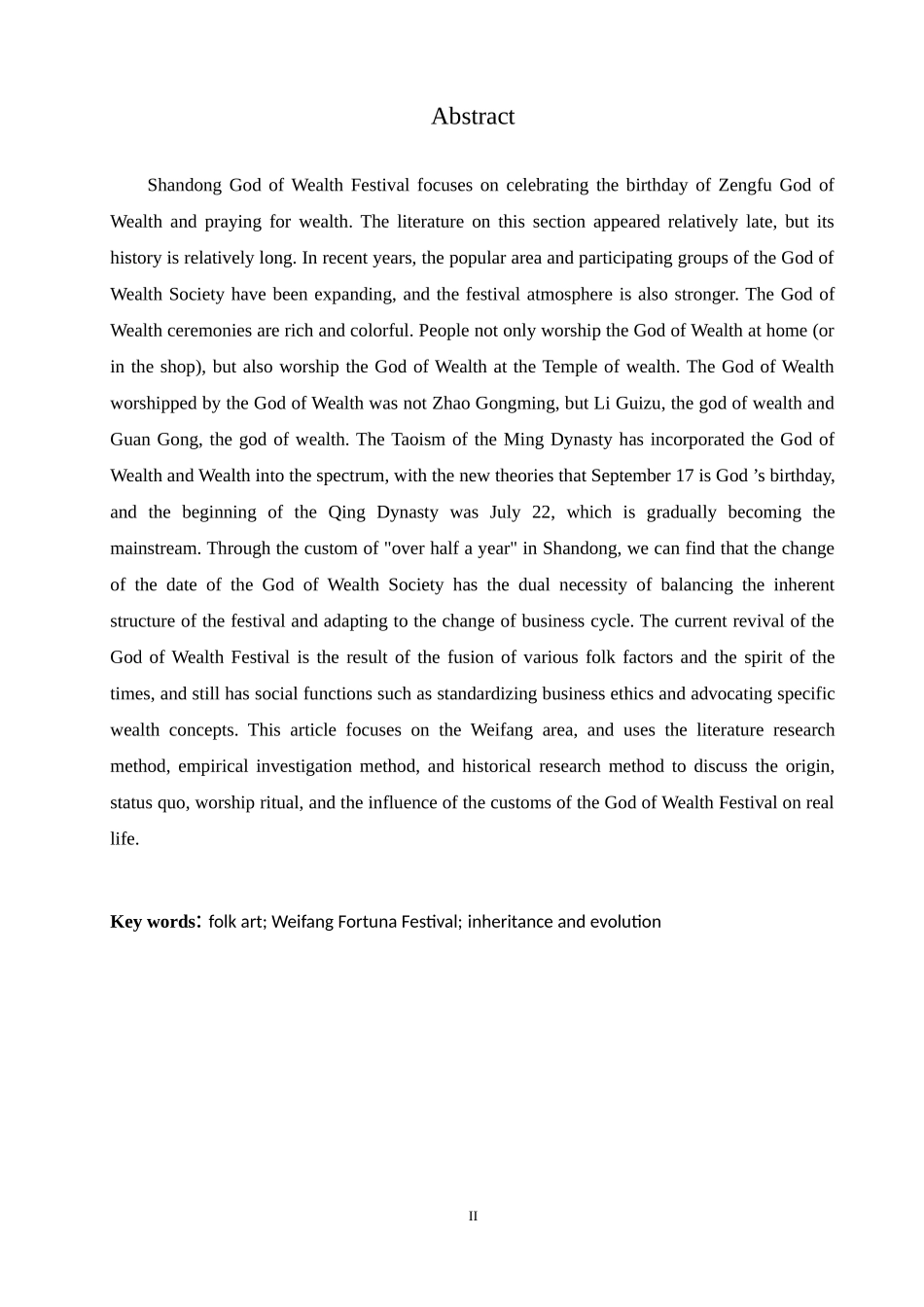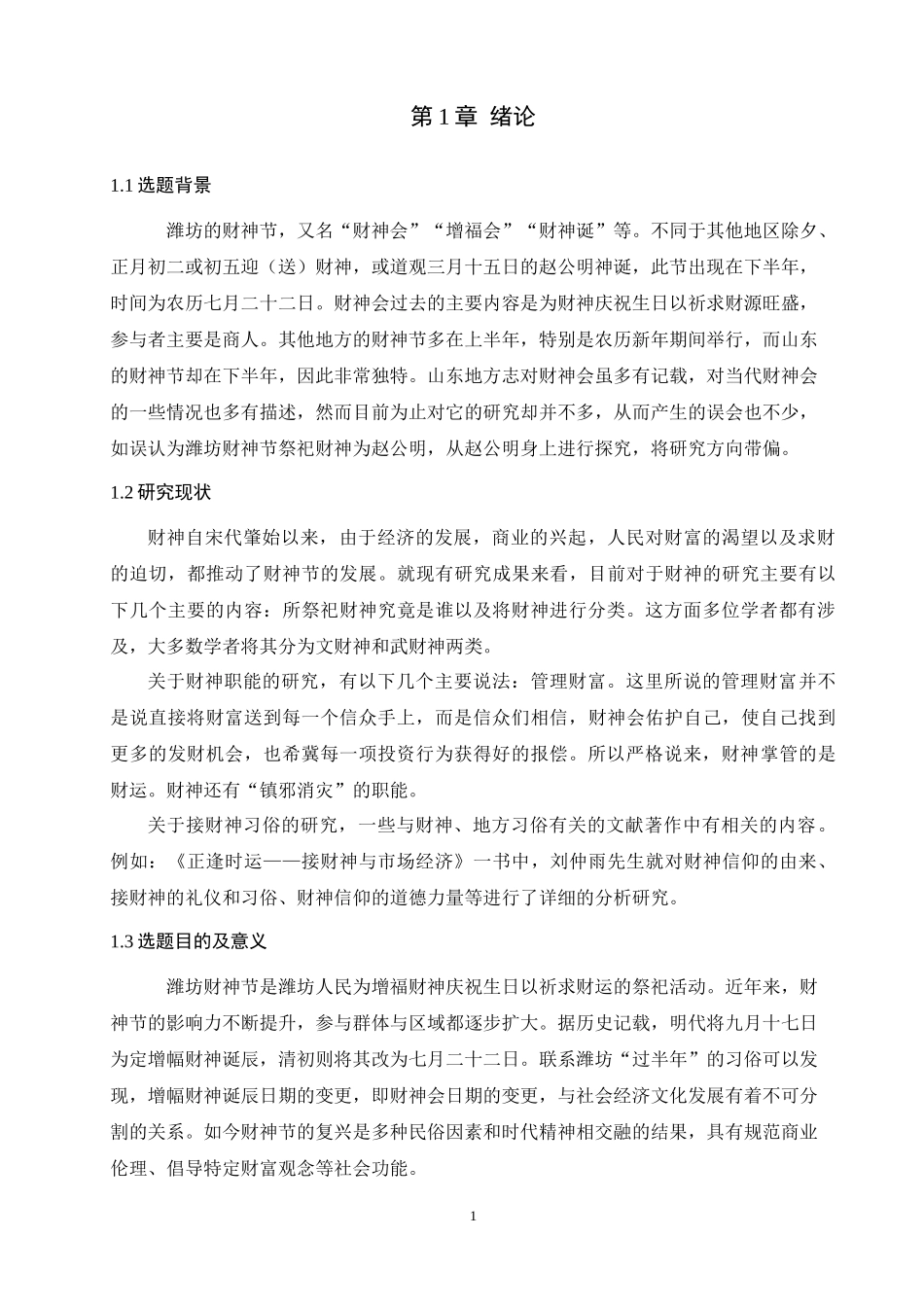摘 要山东财神节以庆祝增福财神生日、祈求财运为主要内容。对此节的文献记载出现较晚,但其历史较为悠久。近年财神会的流行区域和参与群体都呈扩大趋势,财神会仪式活动丰富多彩,节日氛围也更浓厚。财神会所祀财神并非赵公明,而是增福财神李诡祖和武财神关公。透过山东“过半年”习俗可以发现,财神会日期之变更,具有平衡节日内在结构和适应商业周期转变的双重必要性。当下财神节复兴是多种民俗因素和时代精神相交融的结果,具有规范商业伦理、倡导特定财富观念等社会功能。本文以潍坊地区为主 ,运用文献研究法、实证调查法、历史考证法,对潍坊财神节的由来、现状、祭拜仪式、及财神节习俗对现实生活的影响等问题分别加以分析,并进而探讨其传承手段与发展趋势。关键词:民俗艺术;潍坊财神节;传承与演变IAbstractShandong God of Wealth Festival focuses on celebrating the birthday of Zengfu God of Wealth and praying for wealth. The literature on this section appeared relatively late, but its history is relatively long. In recent years, the popular area and participating groups of the God of Wealth Society have been expanding, and the festival atmosphere is also stronger. The God of Wealth ceremonies are rich and colorful. People not only worship the God of Wealth at home (or in the shop), but also worship the God of Wealth at the Temple of wealth. The God of Wealth worshipped by the God of Wealth was not Zhao Gongming, but Li Guizu, the god of wealth and Guan Gong, the god of wealth. The Taoism of the Ming Dynasty has incorporated the God of Wealth and Wealth into the spectrum, with the new theories that September 17 is God ’s birthday, and the beginning of the Qing Dynasty was July 22, which is gradually becoming the mainstream. Through the custom of "over half a year" in Shandong, we can find that the change of the date of the God of Wealth Society has the dual necessity of balancing the inherent structure of the festival...


